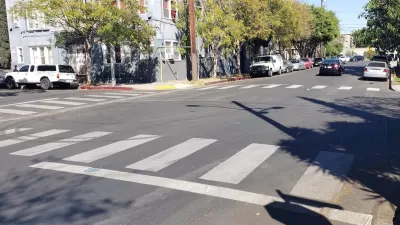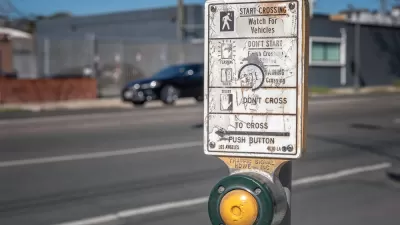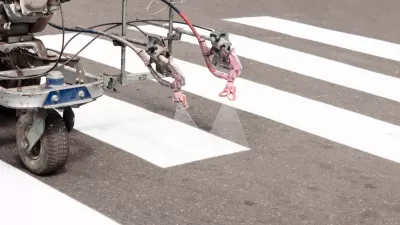Public libraries across America are threatened by reduced staffing, resources, and hours due to budget cuts. However, "little libraries" are popping up in communities across the country as urbanists seek to redefine public space and librarianship.
At the same time that municipal budget cuts threaten the very existence of publicly supported library systems, so-called "little libraries" have emerged as their own subset of the DIY/Tactical urbanist movement.
"Nowadays we have libraries in phone booths and mailboxes, in public parks and train stations, in vacant storefronts and parking lots." writes Shannon Mattern. "Often these are spaces of experimentation, where new models of library service and public engagement can be test-piloted, or where core values can be reassessed and reinvigorated. They are also often an effort to reclaim - for the commons, for the sake of enlightenment (or does this term now carry too much baggage to be used without scare quotes?) - a small corner of public space in cities that have lately become hyper-commercialized, cities that might no longer reflect the civic aspirations of a diverse public."
Considering examples such as the People's Library in Zuccotti Park that was part of the Occupy movement and the UNI project, Mattern attempts to "identify a loose, and inevitably leaky, typology of "little libraries" - to figure out where they're coming from, how they relate to existing institutions that perform similar roles, and what impact they're having on their communities."
"The little library movement is enabling us - sometimes unintentionally,
sometimes not - to appreciate the distance that separates these
ephemeral, marginal spaces and projects from the strong, stable public
institutions that have been so central to our cities, and to our
democracy."
FULL STORY: Marginalia: Little Libraries in the Urban Margins

Alabama: Trump Terminates Settlements for Black Communities Harmed By Raw Sewage
Trump deemed the landmark civil rights agreement “illegal DEI and environmental justice policy.”

Planetizen Federal Action Tracker
A weekly monitor of how Trump’s orders and actions are impacting planners and planning in America.

Why Should We Subsidize Public Transportation?
Many public transit agencies face financial stress due to rising costs, declining fare revenue, and declining subsidies. Transit advocates must provide a strong business case for increasing public transit funding.

Understanding Road Diets
An explainer from Momentum highlights the advantages of reducing vehicle lanes in favor of more bike, transit, and pedestrian infrastructure.

New California Law Regulates Warehouse Pollution
A new law tightens building and emissions regulations for large distribution warehouses to mitigate air pollution and traffic in surrounding communities.

Phoenix Announces Opening Date for Light Rail Extension
The South Central extension will connect South Phoenix to downtown and other major hubs starting on June 7.
Urban Design for Planners 1: Software Tools
This six-course series explores essential urban design concepts using open source software and equips planners with the tools they need to participate fully in the urban design process.
Planning for Universal Design
Learn the tools for implementing Universal Design in planning regulations.
Caltrans
Smith Gee Studio
Institute for Housing and Urban Development Studies (IHS)
City of Grandview
Harvard GSD Executive Education
Toledo-Lucas County Plan Commissions
Salt Lake City
NYU Wagner Graduate School of Public Service





























